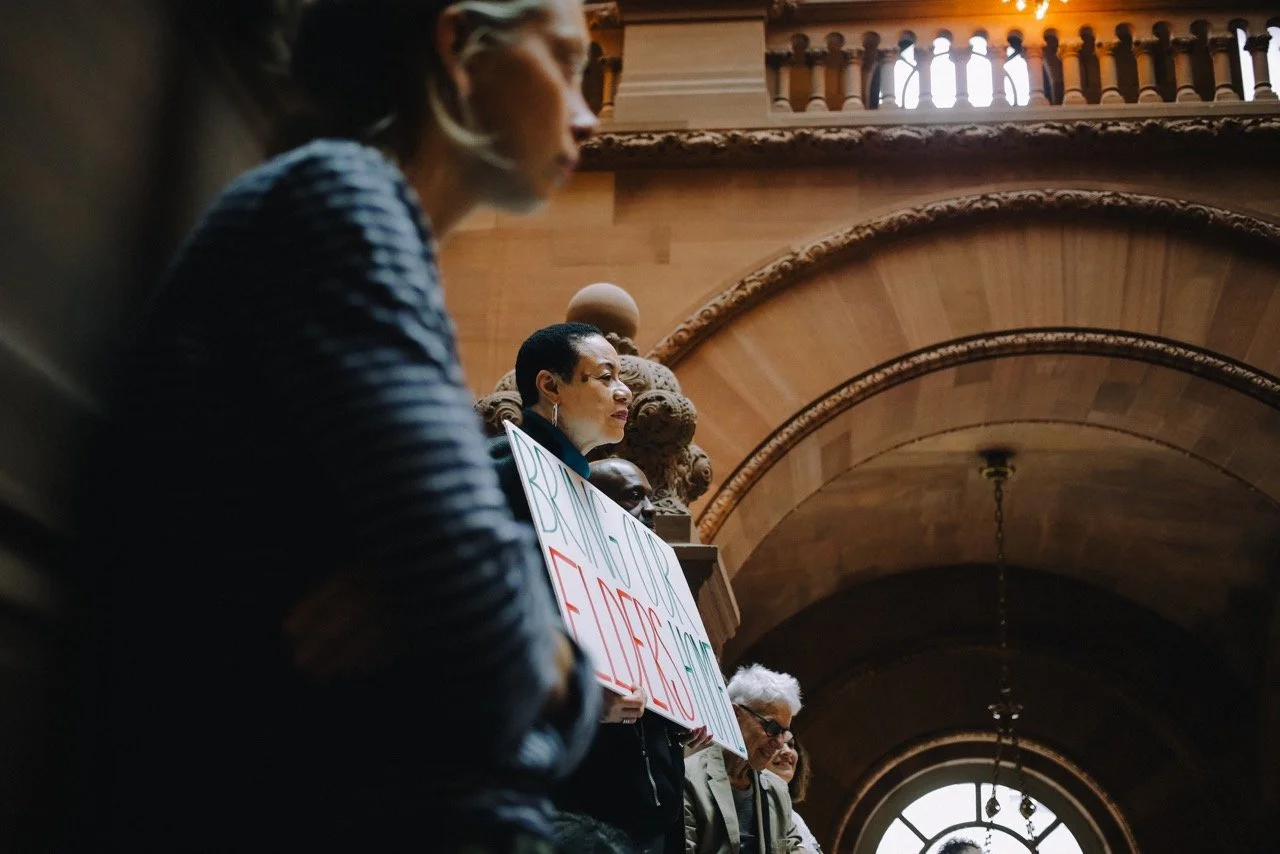One-fifth of Queens residents in NY prisons are 55 or older, data shows
/Queens lawmakers and residents will rally in albany on Wednesday in support of a pair of parole reform bills. file photo via rapp
By Jacob Kaye
Nearly a fifth of all Queens residents behind bars in New York are 55 years or older – and despite being convicted at a far younger age, have few opportunities to advocate for their release, according to new data shared with the Eagle.
According to data from the Release Aging People in Prison Campaign, around 18 percent of all Queens residents serving their sentences in New York State prisons are 55 years or older. Many, according to advocates, were given multi-decade sentences at a young age and despite changing their lives while incarcerated, have found it difficult to petition for their release.
The data compiled by the organization is set to be highlighted on Wednesday in Albany as legislative leaders and locals from Queens will push lawmakers to pass a pair of parole reform bills into law.
The bills – the Fair and Timely Parole bill and the Elder Parole bill – would, together, create new opportunities for aging incarcerated New Yorkers to appear before a parole board and potentially be granted release, proponents of the legislation say.
Without the bills’ passage, advocates claim that New York’s parole system will continue to keep aging New Yorkers in prison, preventing them from potentially aiding others’ rehabilitation and generally getting to live their later years among family, friends and their community.
It’s also a racial justice issue, they say. Around 91 percent of Queens residents serving time in prison are people of color – 53 percent are Black – despite the fact that white residents make up 47 percent of the borough. Similar racial disparities are seen across the state.
“New York’s parole system is rooted in retribution, leaving too many New Yorkers languishing in prison into their old age, regardless of whether or not they pose a threat to the public,” Senate Deputy Leader Michael Gianaris said in a statement. “The Elder Parole and Fair and Timely Parole bills represent important reforms that would prioritize rehabilitation and safety.”
Gianaris is one of seven state senators from Queens to co-sponsor the two pieces of legislation – all but one Queens senator, Joe Addobbo, has signed on as co-sponsors of the bills. Support for the parole reforms is similar in the Assembly, where 12 of Queens’ 18 assemblymembers have voiced support for the bills, including Assemblymember David Weprin, who sponsors the Fair and Timely Parole bill.
In a statement to the Eagle, Weprin said that during his time as the former chair of the legislative body’s correction committee, he toured nearly three dozen prisons and spoke with numerous incarcerated New Yorkers and staff who told him “about how many people come in young after making mistakes.”
“But they mature, they change — because elders in prison guide them,” Weprin said.
“Parole should be about who a person is today,” he added. “The nature of the crime will never change. But the nature of the individual does change — and that’s what parole should be about.”
The two bills compliment one another.
The Fair and Timely Parole bill would alter parole reviews and require the board to consider a more holistic view of who a person has become while incarcerated, rather than focusing primarily on the crime they were convicted of. The Elder Parole bill would allow for people aged 55 and older who have already served 15 or more years of their sentence to receive an appearance before the parole board.
Together, the bills aim to address the approximately 4,700 people aged 55 or older who are incarcerated in New York State prisons who are at a high risk of falling ill or dying while incarcerated.
Vanessa Santiago, a formerly incarcerated New Yorker who now runs a mutual aid organization, said parole reform would give more people like herself an opportunity to contribute to their communities after serving their time in prison.
“I knew when I was released that I wanted to be an asset to my community and I haven’t looked back since,” said Santiago, who also works as a Queens organizer with RAPP. “I organize with the RAPP Campaign because there are so many incredible women and other Queens community members in prison I left behind, leading anti-violence programs and women’s health programs and more, and I know they would do great work back home just like me if given the chance.”
“We’re part of the solution, so pass Elder Parole and Fair and Timely Parole and bring home more leaders to improve community safety,” she added.




